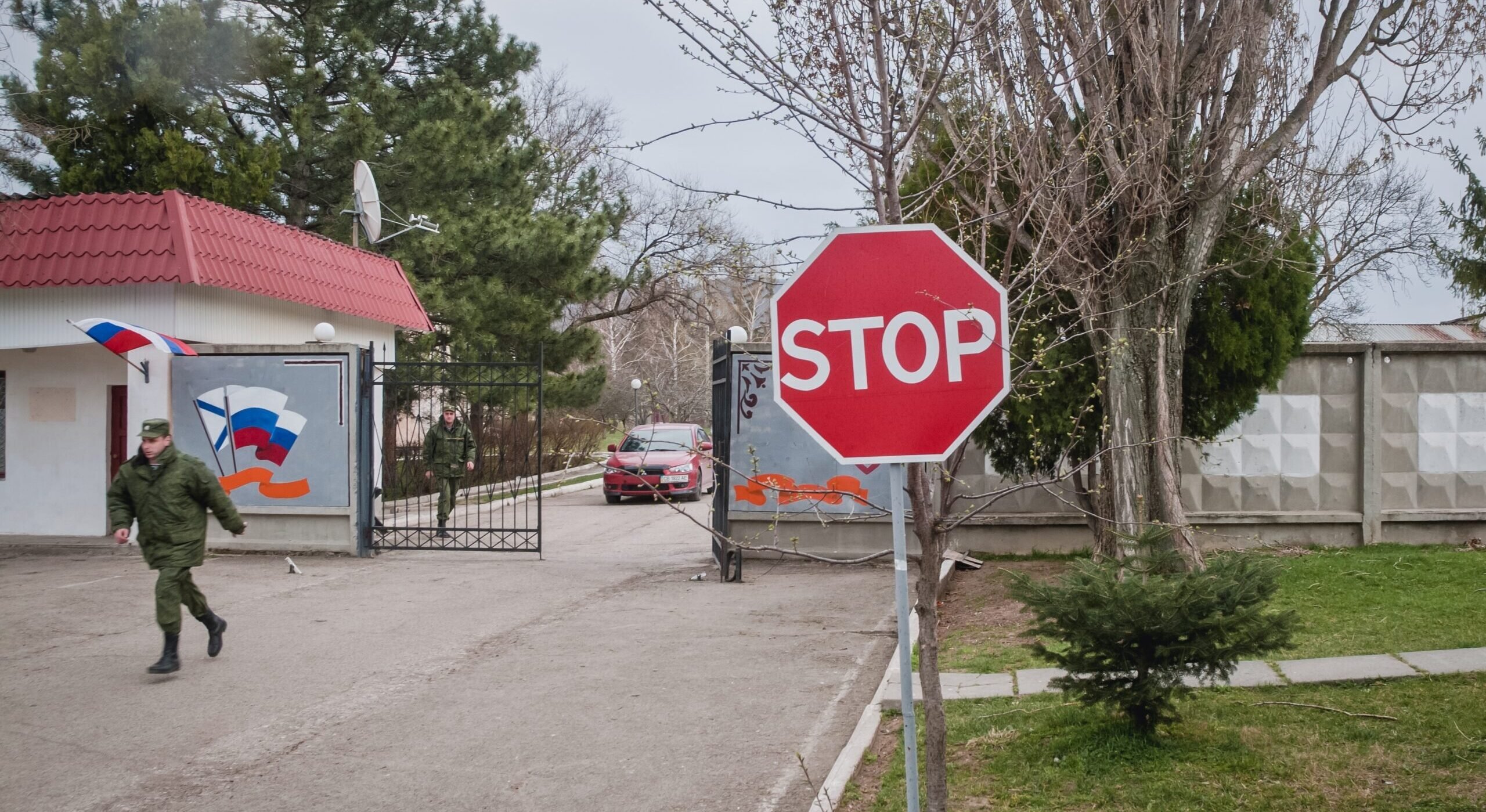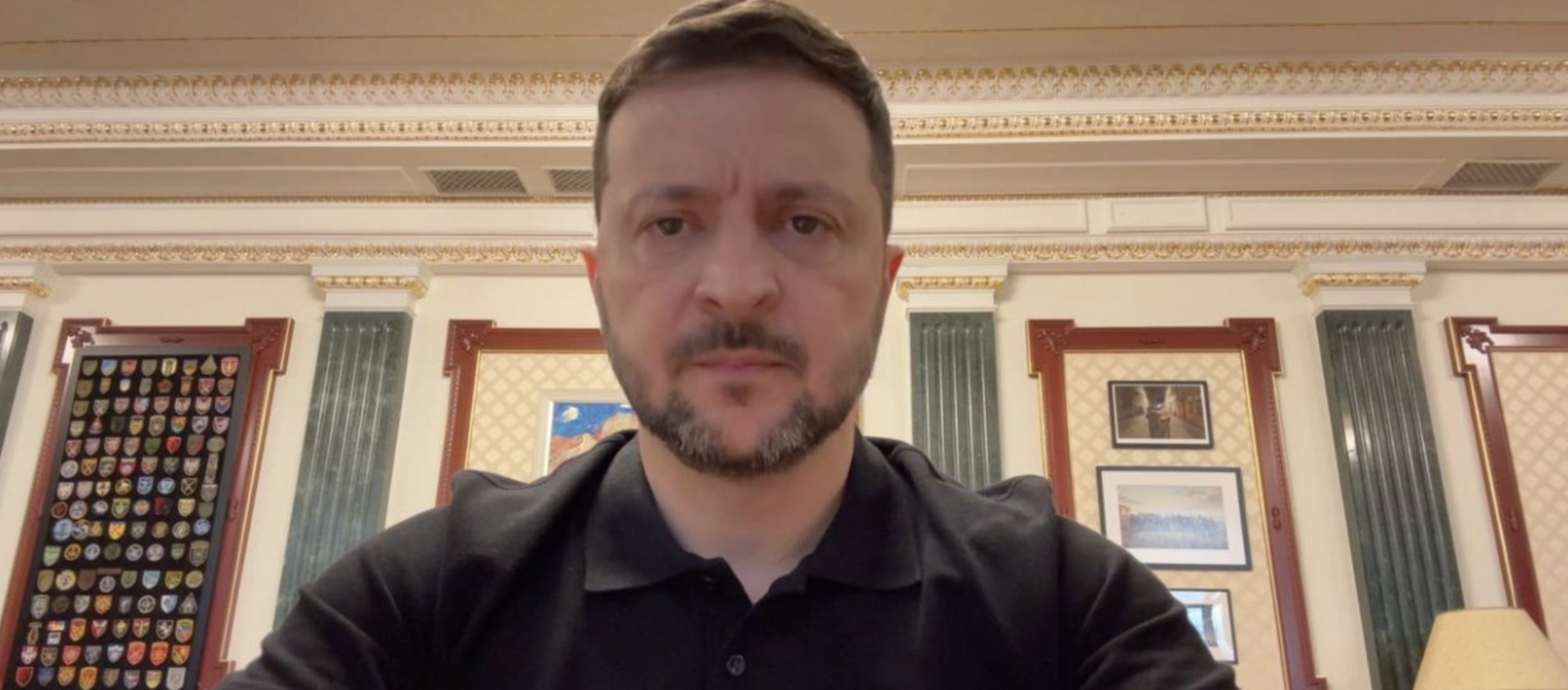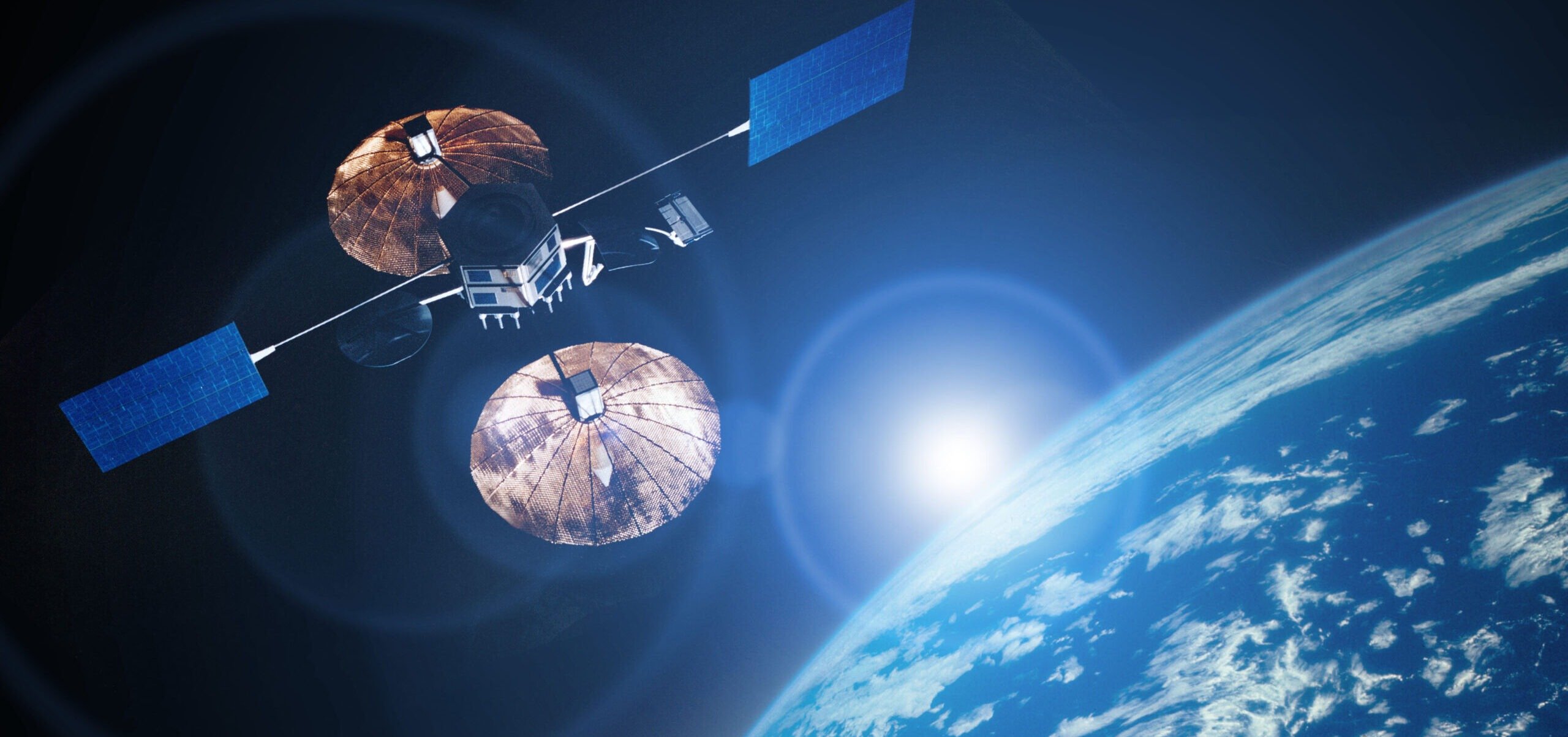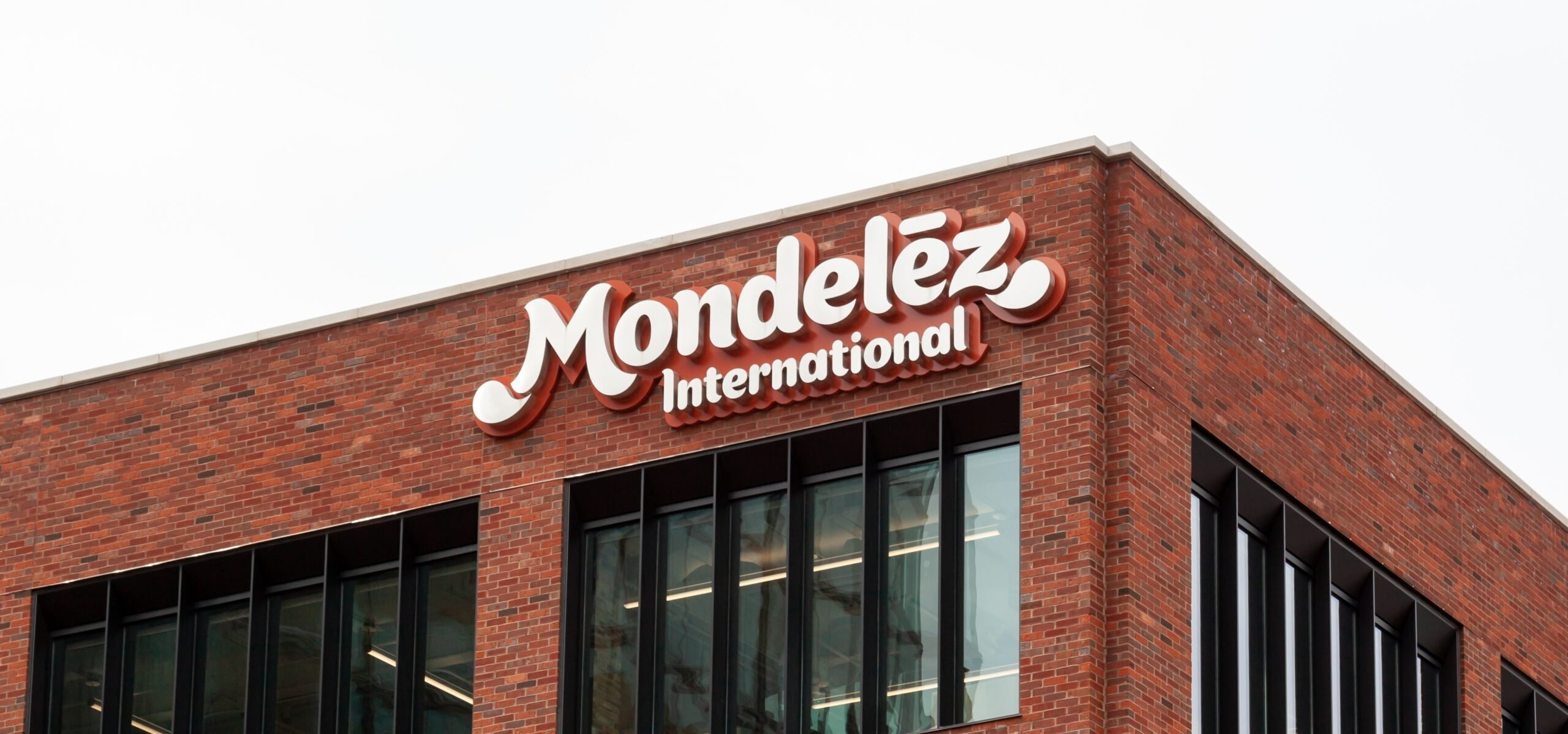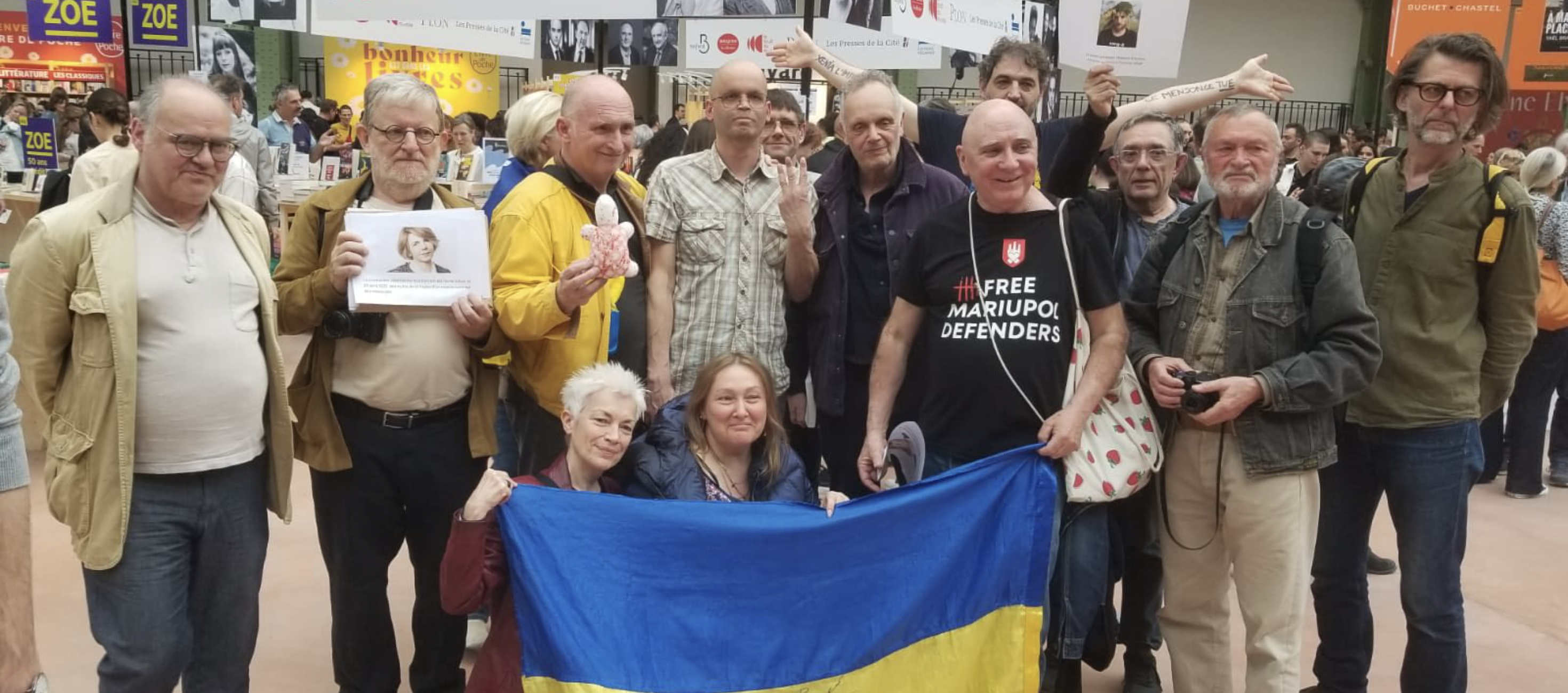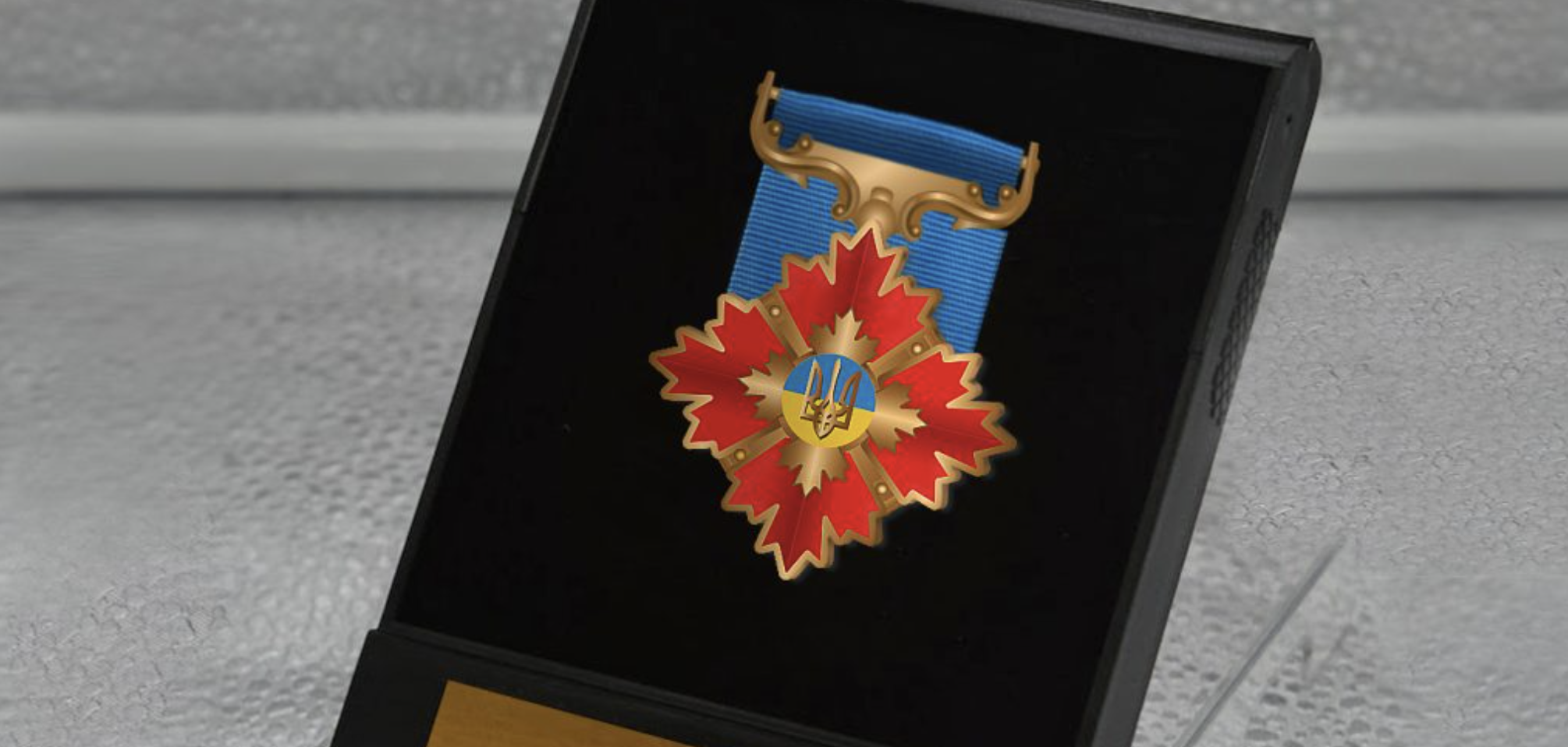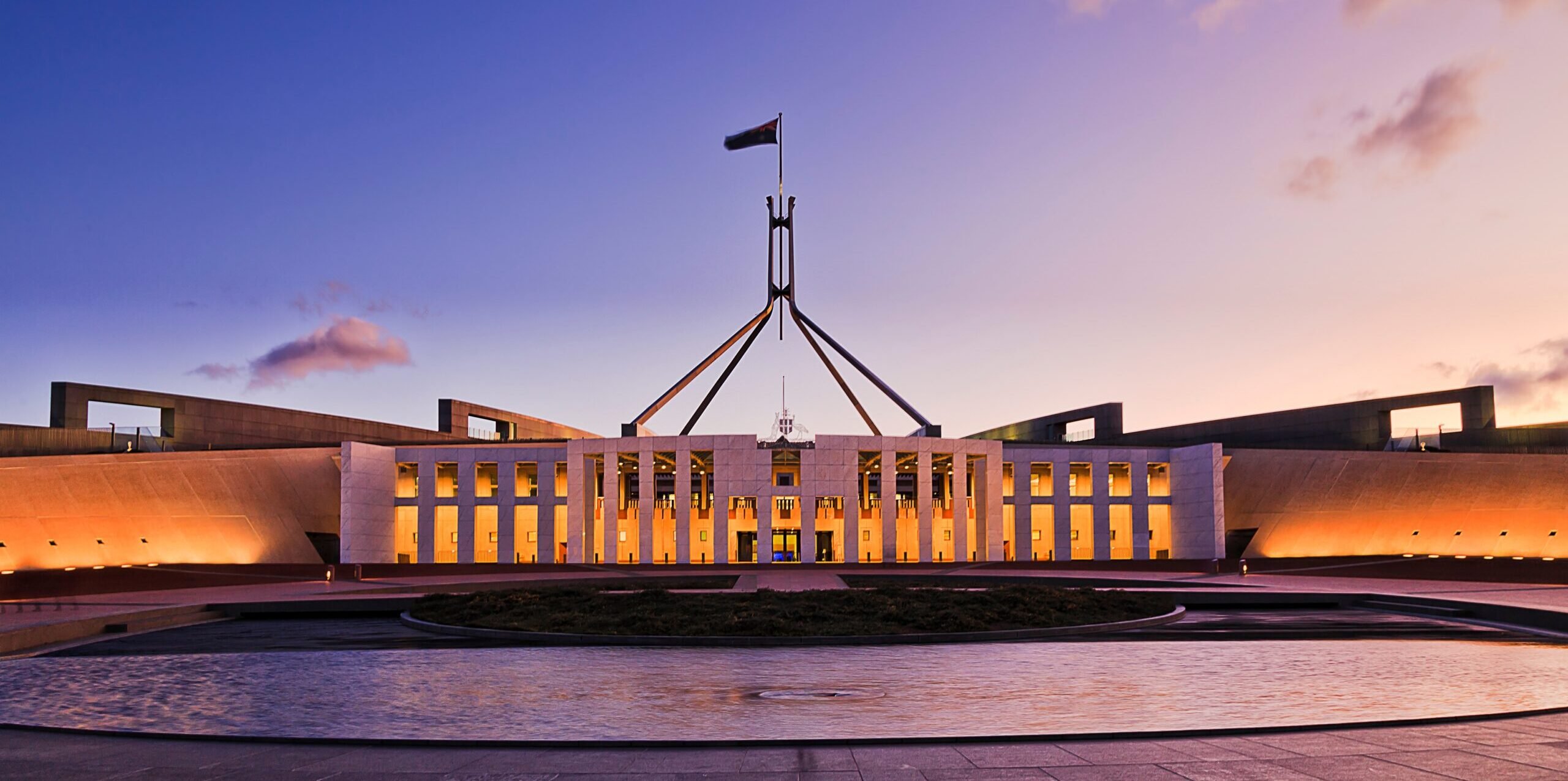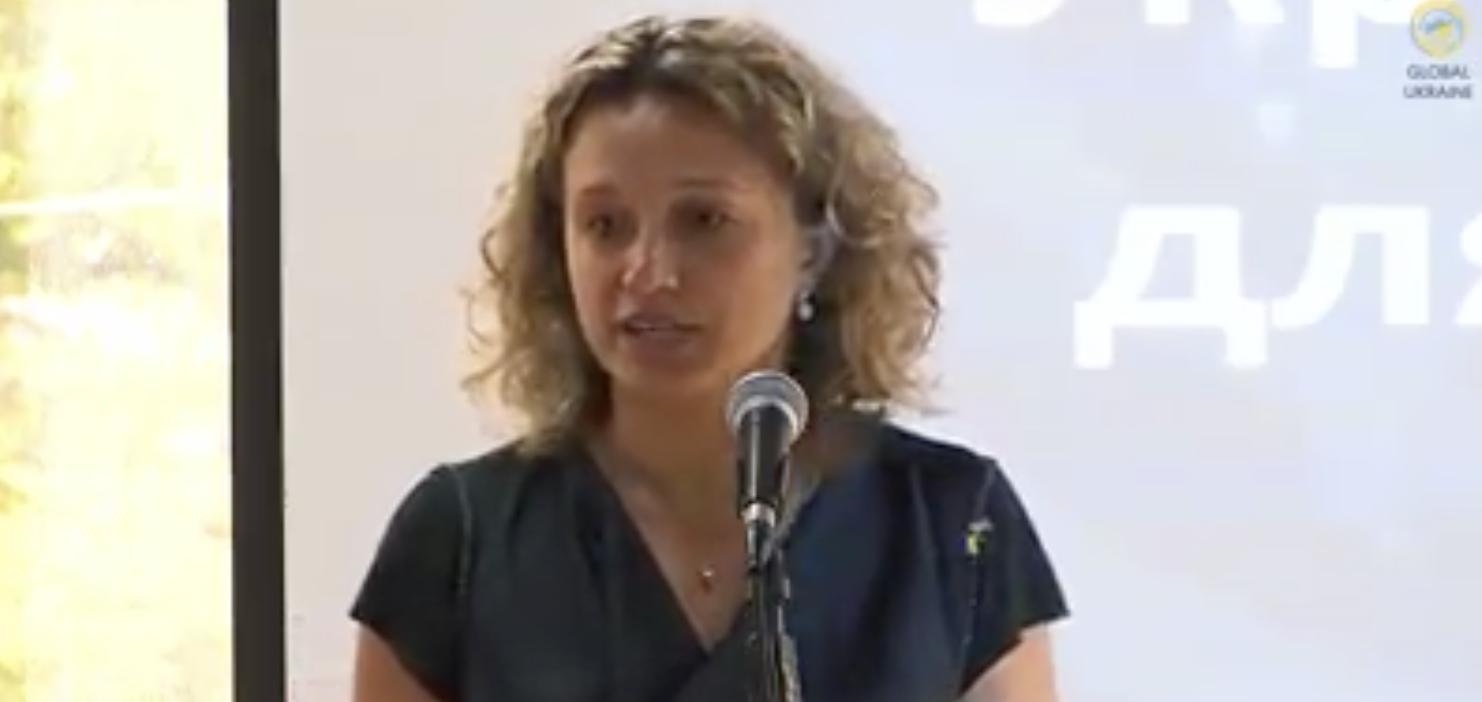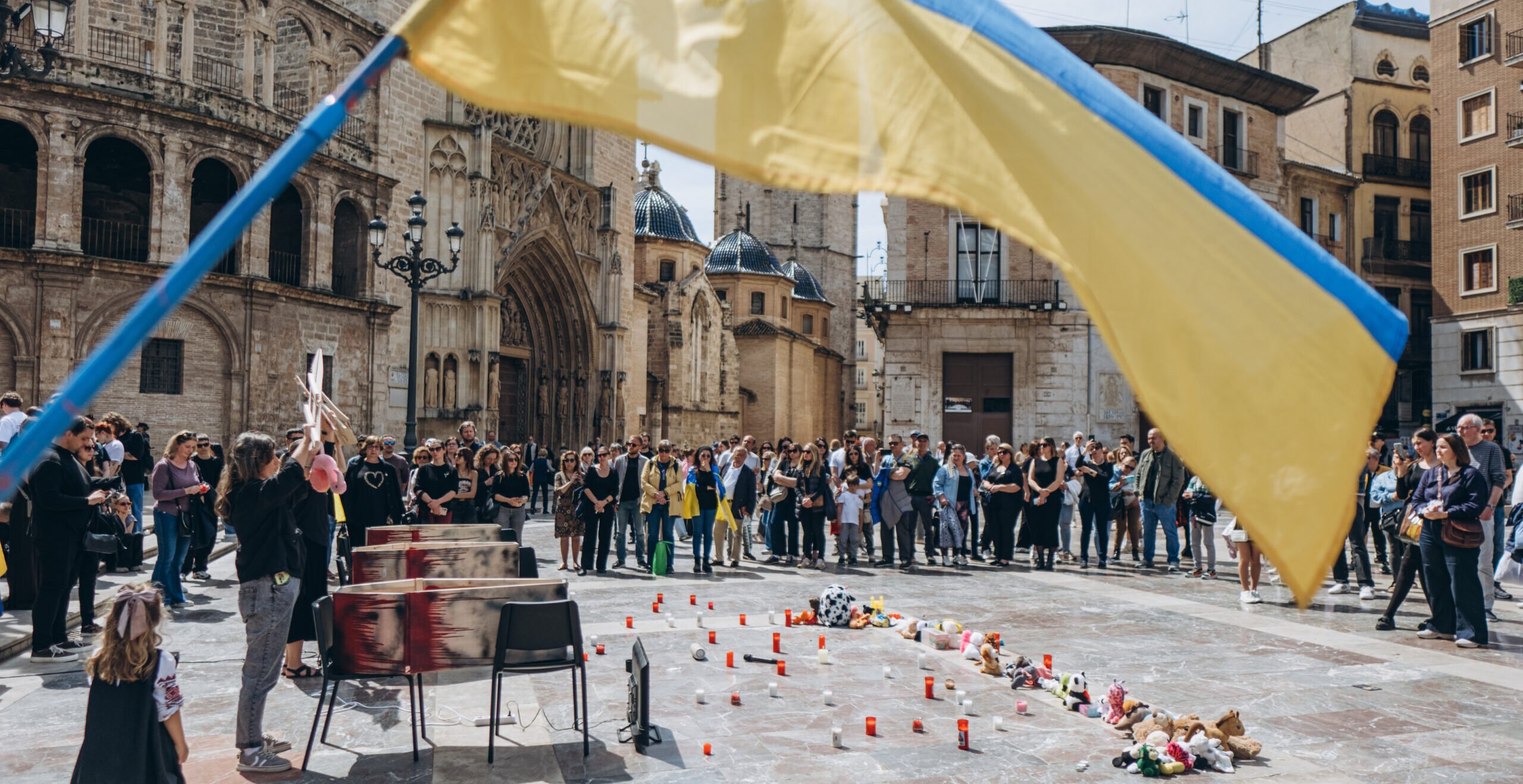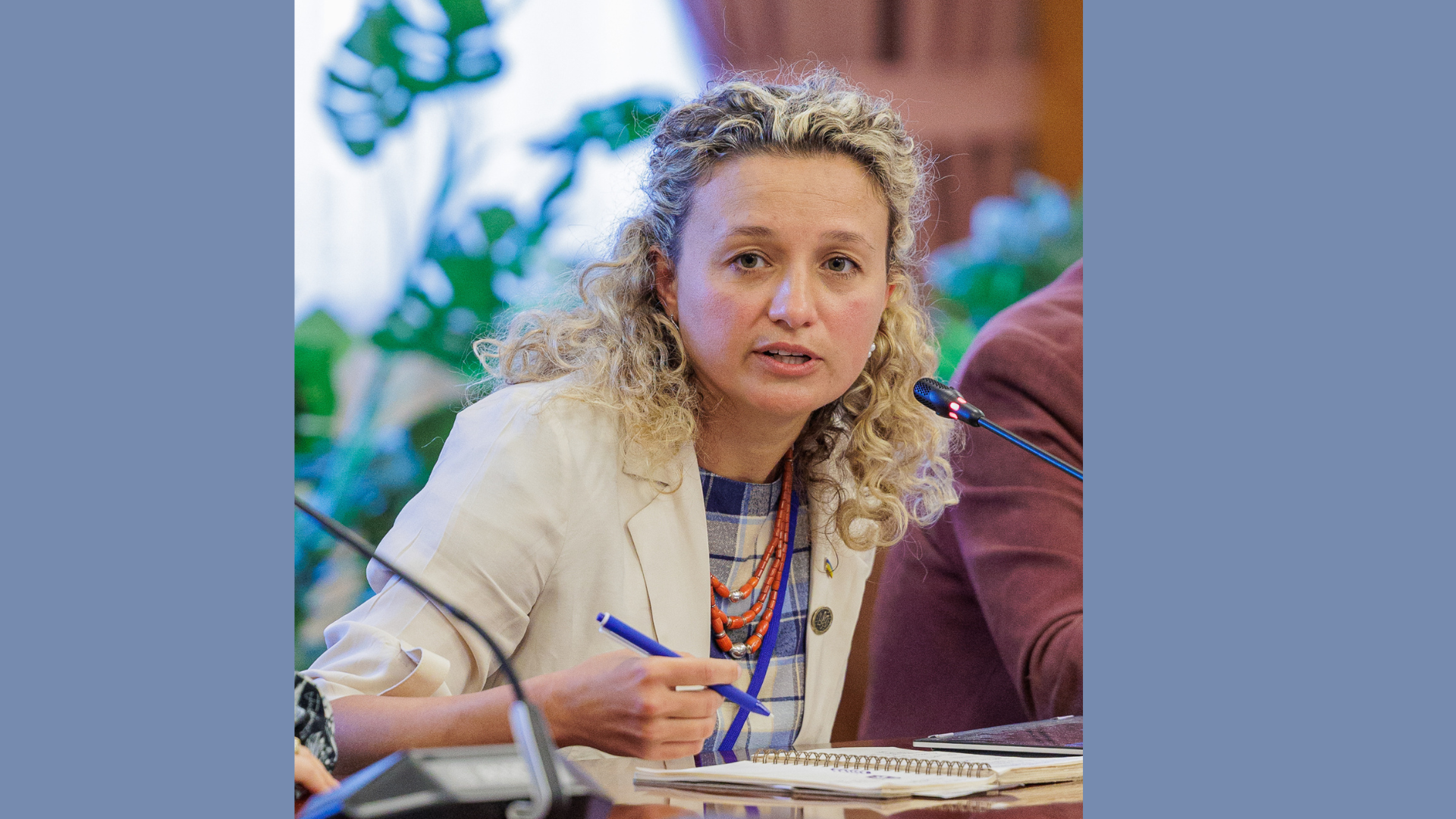
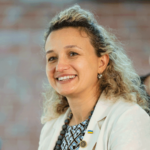 by Dzvinka Kachur, UWC Regional Vice President for Africa, a research associate at the Centre for Sustainability Transitions at Stellenbosch University in South Africa and a co-founder of the Ukrainian Association of South Africa non-profit organization
by Dzvinka Kachur, UWC Regional Vice President for Africa, a research associate at the Centre for Sustainability Transitions at Stellenbosch University in South Africa and a co-founder of the Ukrainian Association of South Africa non-profit organization
Source: Ukrainska Pravda
Russian influence in African countries is widely regarded as substantial, yet the foundations of this influence are not always clear.
At its core are the concerted efforts of “Putin’s managers” to take control of the continent’s most valuable natural resources, replicating energy blackmail tactics previously used in Europe. They also employ highly sophisticated information manipulation techniques to sway public opinion and influence electoral processes. Additionally, Russia has sought to illegitimately claim the legacy of the Soviet Union’s decades-long cooperation with and support for African nations.
It’s important to recognize that Russia’s intensified ties with African countries over the past decade largely stem from its desire to dominate Ukraine.
For instance, a Russian leader’s first visit to the African continent didn’t happen until 2006, with a trip to Cape Town in South Africa. However, this focus shifted in 2014, when Russia attacked Ukraine and encountered its first wave of Western sanctions.
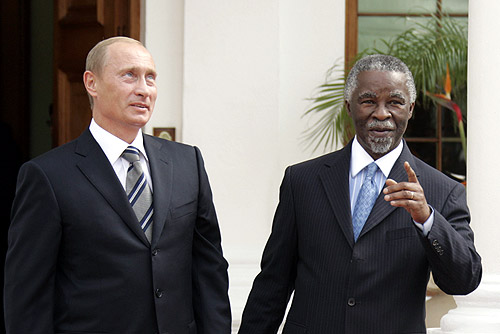 Russian president Vladimir Putin with South African president Thabo Mbeki on 5 September 2006. Photo: Wikipedia.
Russian president Vladimir Putin with South African president Thabo Mbeki on 5 September 2006. Photo: Wikipedia.
Since then, Russia has been forced to find new markets, viewing Africa as an accessible source. It reactivated military cooperation, which had largely paused after the Soviet Union’s collapse, and began actively seeking opportunities for economic partnerships.
To build these ties, Russia shifted from relying on Soviet-era networks to using “Putin’s managers” – oligarchs who control key state-owned or private companies in the natural resources sector, such as Gazprom, Lukoil, Alrosa, Vi Holding, Uralkali, and Renova.
Their approach was pragmatic and simple: secure easy access to the vast mineral wealth of one of the world’s richest continents and continue profiting through the same schemes that have long been successful in Russia.
However, Russia quickly realized that it was not the only player on the continent; countries like China, Türkiye, the United States, and France had already established a strong presence. Consequently, Russia’s endeavors in Africa have proven to be far from straightforward.
Additionally, it is crucial to emphasize Russia’s nuclear strategy for Africa. The country has systematically utilized energy resources as a political tool against neighboring states.
In 2000 and 2006, Russia blocked energy supplies to Georgia as a means of exerting pressure during elections and in response to its pro-Western policies. A similar approach was taken in Ukraine in 2006, 2009, and 2014. Furthermore, Russia used this tactic in the Czech Republic in 2008 due to the deployment of a missile defense system, as well as in Belarus (2004, 2006), Latvia (2003), and Lithuania (2006).
Initially, Russia established a method of political pressure through controlled dependence of countries on its energy resources, as demonstrated by various energy blockades. It later transitioned to a strategy focused on promoting and selling its nuclear reactors.
Nuclear power plants require close collaboration with security services due to the oversight of uranium enrichment, which creates technological and financial dependence on the reactor developer. In 2012, Rosatom opened its office in South Africa, marking its third international office after those in Ukraine and China. Despite signing nearly 20 agreements for nuclear cooperation, Russia is currently only constructing a reactor in Egypt.
Nearly all the methods of information and military manipulation that Russia employs in African countries, including groups like the Kremlin-backed Wagner mercenary group and the Internet Research Agency, were initially developed and tested in attacks against Ukraine and its society.
To influence elections in African nations, Russia established the so-called “Association for Free Research and International Cooperation (AFRIC)”. Although it claimed to be an African network of experts, its real purpose was to advance Russian interests on the continent and manipulate electoral processes.
In 2019, Russia attempted to consolidate its efforts towards Russian-African cooperation by hosting a flashy Russia-Africa summit. The event appeared to be a breakthrough, with Russian companies signing billion-dollar contracts with African partners. However, it quickly became clear that most of these agreements were never fulfilled.
Although Russia did not achieve a swift takeover of the African continent, it established the Russia-Africa Partnership Forum in 2020. This platform was designed to enhance and coordinate the activities of diplomatic missions, emerging companies in the natural resources sector, and institutions connected to the Soviet Union.
The platform included the Institute of African Studies, Rossotrudnichestvo, and the Russian Export Center (REC), along with the newly established Association for Economic Cooperation with African States (AECAS).
 A Rosatom’s office. Photo: Elena Ignatieva.
A Rosatom’s office. Photo: Elena Ignatieva.
AECAS brings together six major Russian private companies: Gazprombank, Transmashholding, Vi Holding, Uralkali, Alrosa, and Rosatom. All of these companies were already under Western sanctions even before the full-scale invasion of February 2022.
The aim of AECAS was to assist Russian businesses in their interactions with the political, diplomatic, and informational institutions of the African Union.
However, Russia faced challenges in quickly establishing economic cooperation. Instead, it found success with two strategies: returning to the Soviet-era tactics of information manipulation and supporting power grabs by military juntas.
A prime example of a military regime allowing Russia to exploit its natural resources in exchange for military support is the Central African Republic. Although a different leader has replaced the deceased Wagner leader Yevgeniy Prigozhin, the operational model remains unchanged. The Russian army perpetrates abuses against the local population, including acts of rape and murder against civilians. The United Nations documents these violations in its reports; nonetheless, Russia’s influence through this strategy continues to expand in the Sahel region, affecting countries like Mali, Niger, and others.
In addition to backing military regimes, Russia has successfully revived an extensive network of informational influence that the Soviet Union cultivated over decades across the continent.
Since the 1960s, the Soviet Union established mechanisms for influence in Africa, training military personnel and offering scholarships to future leaders of various African nations. These scholarships were primarily awarded to the children of political elites and influential figures, many of whom still hold significant government positions today.
Moreover, a network of Russian cultural centers has grown, laying the groundwork for Russian influence through programs implemented by Rossotrudnichestvo and other organizations. Currently, there are eight of these centers located in Egypt (Alexandria and Cairo), Ethiopia, Tanzania, Morocco, Zambia, the Democratic Republic of Congo, Tunisia, and South Africa.
Russian ambassadors and officials often open their speeches with the mantras: “We never colonized Africa” and “We supported the movements fighting against colonialism and apartheid”.
Unfortunately, most people on the continent are unaware of Russia’s colonial attempts in Djibouti or the centuries of colonization by the Russian Empire in neighboring countries. Moreover, few are informed about the Ukrainian SSR’s significant role in the fight against apartheid.
Modern technologies also allow Russia to engage local residents of the continent as cheap labor for troll farms and to use local bloggers to promote Russian aggression and the annexation of Ukrainian territories.
In 2022, when a significant number of countries on the continent refrained from supporting Ukraine, the latter was forced to engage in the “fight for Africa”.
In 2022, Ukraine launched its first strategy for engagement in Africa and appointed a special representative for the Middle East and Africa. The following year, a comprehensive communication strategy was developed and approved, alongside a strategic decision to open ten additional embassies on the continent. Before these developments, Ukraine operated only ten diplomatic missions across 54 African countries.
The full-scale invasion of Ukraine prompted a surge in dialogue between Ukrainian officials and African governments. More than twenty discussions took place with various presidents, with half of these interactions marking the first time in the history of Ukraine’s independent diplomacy that such direct communication occurred.
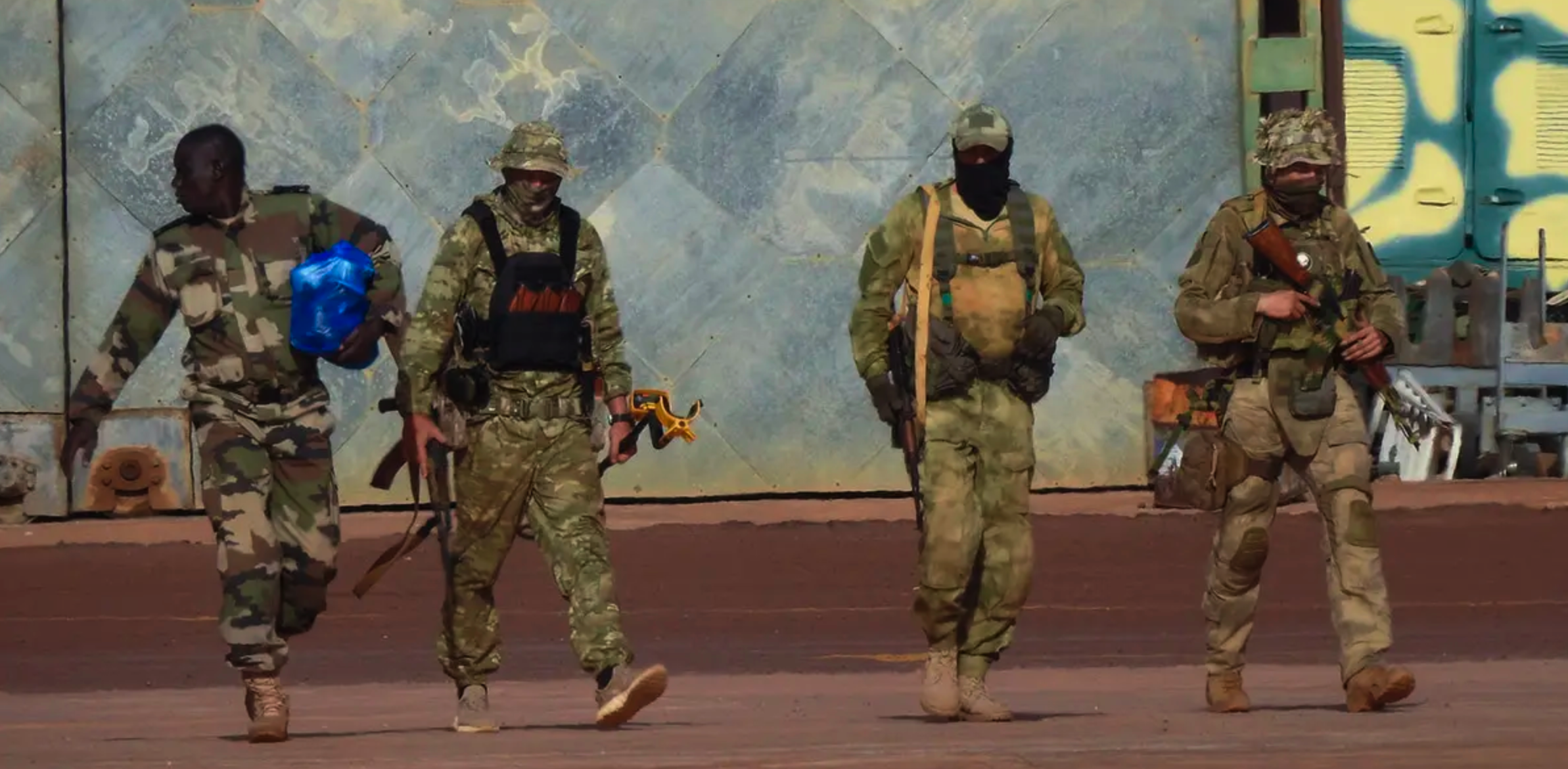 Wagner Group members observe the streets in northern Mali. Photo: French Army/Associated Press.
Wagner Group members observe the streets in northern Mali. Photo: French Army/Associated Press.
In June 2023, leaders from seven African countries embarked on a historic peace mission to Ukraine and Russia. The delegation included Senegal’s President Macky Sall, Comoros President Azali Assoumani, South African President Cyril Ramaphosa, Zambian President Hakainde Hichilema, Egyptian Prime Minister Mostafa Madbouly, and special representatives from the presidents of Congo and Uganda.
This marked the first time that African leaders participated in peacekeeping efforts outside their continent, representing a significant development in international diplomacy for Africa.
Despite Ukraine’s substantial efforts, quickly “winning over Africa” has proven to be a formidable challenge. Building and nurturing bilateral relationships requires time and dedication.
In addition to diplomatic initiatives, one of the most effective mechanisms for safeguarding Ukraine’s interests on the continent is its diaspora. Russia’s invasion in 2014 mobilized millions of young Ukrainians worldwide, prompting them to unite in various organizations. Ukrainian communities have become particularly active in South Africa, Egypt, and Tunisia, further strengthening ties and support for Ukraine across the African continent.
Russian propagandists and experts often express frustration over the active role of Ukrainians on the continent, as their efforts consistently undermine Russian plans. This dynamic means that not only Ukraine and its Western allies are targeted, but also the Ukrainian community in Africa itself.
For example, in September 2024, South African media published articles from representatives of three different political parties. These articles accused the Ukrainian Association of South Africa of promoting imperialism, white supremacy, supporting NATO, and ignoring the historical struggle against apartheid. At the same time, they glorified Russia’s role in combating apartheid.
In addition to these articles, social media was flooded with posts featuring identical grammatical errors from various individuals who purportedly supported the claims made by South African politicians. Remarkably, the media outlets did not seek comments from the Ukrainian Association of South Africa. Furthermore, when a fourth media outlet, planning to publish a similar article, requested a comment, it ultimately decided against releasing the piece altogether.
After all, facts are facts:
- Since 1962, the first students from the African National Congress (ANC) began their studies at higher education institutions in Kyiv, with many staying in Ukraine for an additional four years.
- Numerous fighters from uMkhonto we Sizwe (MK), who were trained in the USSR, were specifically dispatched to Ukraine. Between 1963 and 1965, 328 recruits received training near Odesa.
- For decades, Ukraine played a pivotal role as the deputy chair of the UN Special Committee against apartheid, notably while the Soviet Union was not a member. Ukrainian diplomats, such as Hennadii Udovenko, considered the struggle against apartheid one of the few examples of an independent foreign policy for the Ukrainian Soviet Socialist Republic.
- In 1963, Oliver Tambo, the deputy president of the ANC, sent a letter of gratitude to the Ukrainian SSR for its support, expressing his belief that this assistance could contribute to ending apartheid.
Despite the presence of paid comments on social media, ordinary South Africans have responded positively by calling for support for the Ukrainian community.
South African civic organizations are also working to advocate for a just peace for Ukraine. In July 2024, during the mid-year meeting of the African Union, they collaborated with Ukrainian civic organizations to present recommendations on three key aspects of the Peace Formula: regional security and UN reform, nuclear safety, and the return of deported Ukrainian children forcibly held in Russia.
These issues are not only crucial for Ukraine but also resonate deeply with African countries, facilitating dialogue when both sides are given the opportunity to express their views and truly listen to one another.
The African continent and Ukraine share many common themes and challenges. A systematic and strategic approach to informational initiatives will help foster long-lasting, mutually beneficial economic and humanitarian relationships.
Cover: Sergei Bobylev/TASS Host Photo Agency
